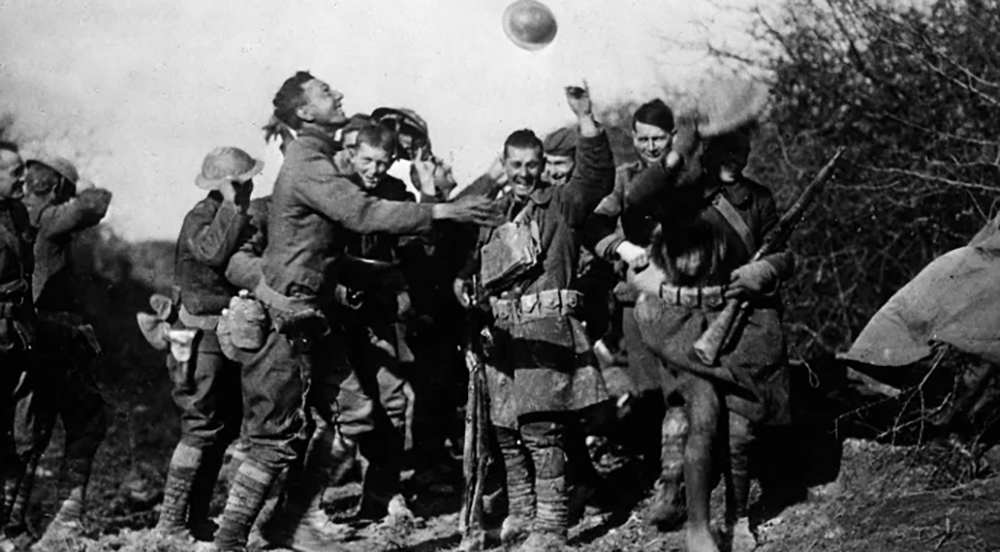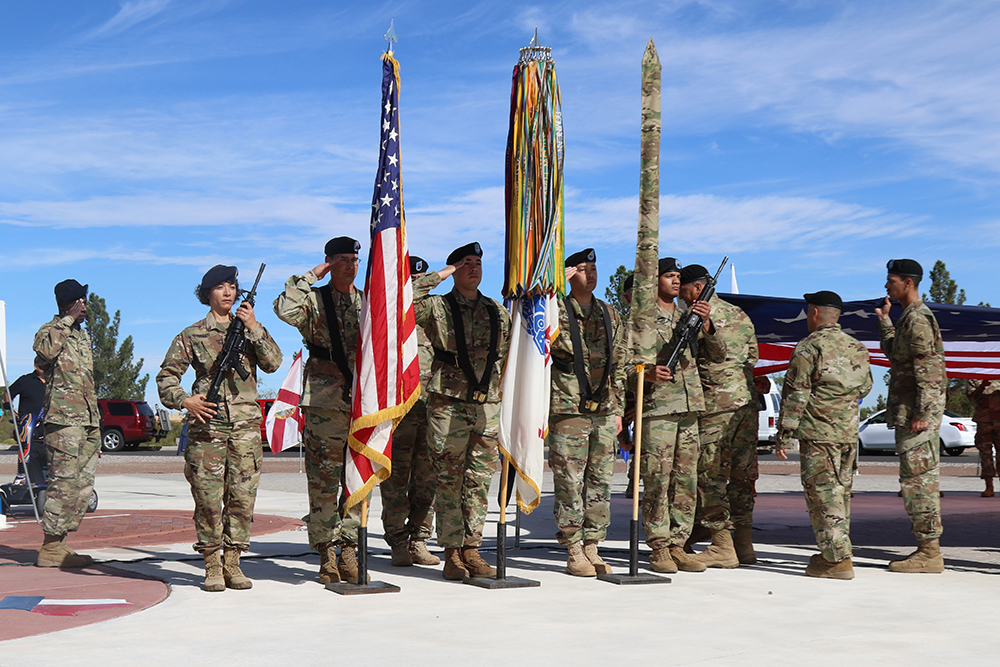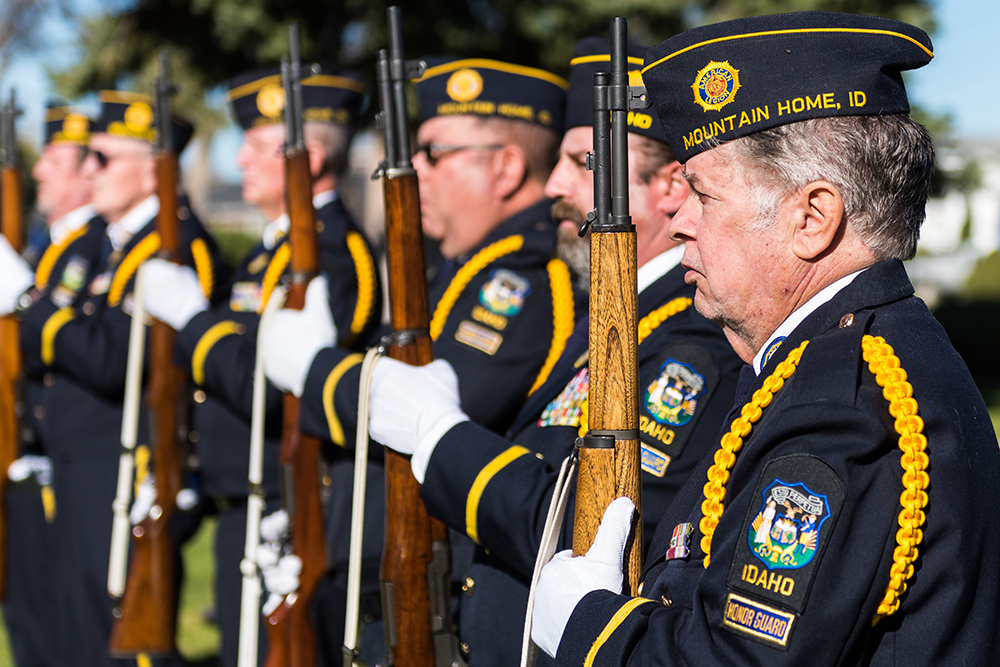Veterans Day has its origins at the end of World War I when at the 11th hour of the 11th day of the 11th month of 1918, the fighting ended with the signing of an armistice.
In 1919, President Woodrow Wilson proclaimed the first Armistice Day, Nov. 11. The day is also known as Remembrance Day in the Commonwealth of Nations. Wilson’s proclamation stated:
“To us in America, the reflections of Armistice Day will be filled with solemn pride in the heroism of those who died in the country’s service and with gratitude for the victory, both because of the thing from which it has freed us and because of the opportunity it has given America to show her sympathy with peace and justice in the councils of the nations…”

U.S. Soldiers celebrate the armistice that ended World War I, Nov. 11, 1918. © Army Photo
Congress officially passed a concurrent resolution on June 4, 1926, with these words:
“Whereas the 11th of November 1918, marked the cessation of the most destructive, sanguinary, and far reaching war in human annals and the resumption by the people of the United States of peaceful relations with other nations, which we hope may never again be severed, and, whereas it is fitting that the recurring anniversary of this date should be commemorated with thanksgiving and prayer and exercises designed to perpetuate peace through good will and mutual understanding between nations ….”

Soldiers assigned to the 1st Brigade Combat Team participated in the North East El Paso Veterans Day Parade and Ceremony in El Paso, Texas, Nov. 11, 2017. © Army Sgt. Kelsey Miller
The resolution also encouraged the display of the U.S. flag on all government buildings and urged appropriate ceremonies.
A congressional act, approved May 13, 1938, made Nov. 11, a federal holiday.
In 1954, Congress — at the urging of veterans’ organizations — changed the name to Veterans Day to honor service members who had served in all of the nation’s wars.
It should be pointed out that Veterans Day celebrates the service of all U.S. military veterans, while Memorial Day, a federal holiday on the last Monday in May, honors those who have died while in military service.
Another military holiday that also occurs in May, Armed Forces Day, observed on the third Saturday in May, honors those currently serving in the U.S. military.

Veterans participate in a Veterans Day ceremony at Mountain Home Air Force Base, Idaho, Nov. 11, 2016. © Air Force Senior Airman Connor J. Marth
Every Veterans Day, a number of restaurants and retailers offer discounts and special promotions for those who have served or are still serving. Most require proof of service. According to the Department of Veterans Affairs, types of veteran identifications include:
- Defense Department ID cards
- Veteran Health ID cards
- Veteran ID cards
- Veteran’s designation on a state-issued driver’s licenses or ID cards
Information on how to obtain these ID cards can be found here.





